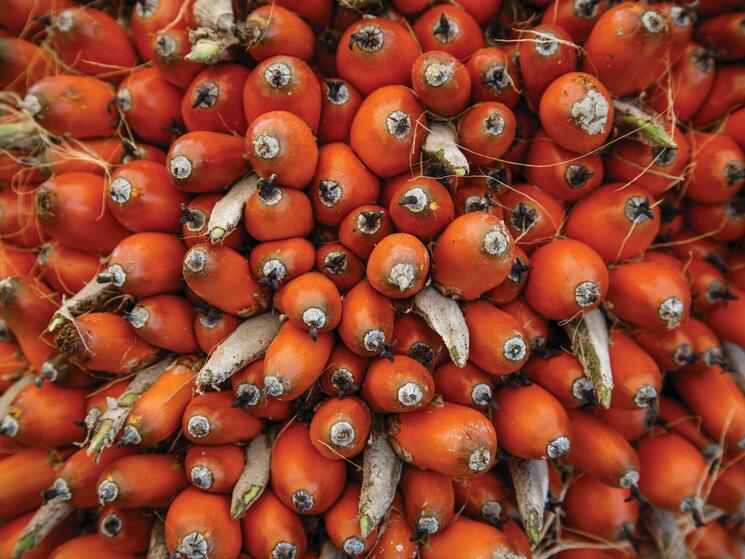
African Countries Pledge to Keep Unsustainable Palm Oil Production Out of Forests
- Date: 16 November 2016
- Author: Durrel Nzene Halleson, WWF-Cameroon and Ludovic Miaro III, WWF Regional Africa Office
Seven African countries today showed their commitment to addressing climate change by pledging to shift to sustainable palm oil production. Their pledge, which has the potential to protect 70 percent of Africa’s tropical forests, is welcome news because deforestation and forest degradation account for 15 percent of all global carbon emissions.
The pledge was in the form of the Marrakesh Declaration, signed today on the side lines of the global climate negotiations in Morocco. Thirteen percent of the world’s tropical forests are within the borders of the seven countries that are part of the agreement. Threats to the forests in these countries are on the rise, in large part to meet the regional demand for palm oil production, which is expected to nearly double in the next four years.
Palm oil is found in numerous everyday household products—from candles to chocolate to laundry detergent. It’s the world’s most produced, consumed and traded vegetable oil, accounting for 38 percent of global vegetable oil consumption from 2014 to 2015.
Africa—particularly the Congo Basin, which is home to the world’s second largest tropical rain forest—is a new global hotspot for palm oil development. The production of this commonly used commodity provides economic development and rural livelihood opportunities. And the end product—palm oil—is in high demand regionally. In Central Africa, estimated annual palm oil production is about 574,764 tons, far below the regional demand, which is estimated to grow from 2.5 million tons in 2015 to about 4.5 million by 2020.
African countries are keen to increase production through attribution of new lands for industrial large-scale plantations. Much of this land is forest land that’s considered to be ecologically sensitive. Palm oil expansion on this land can lead to extensive deforestation, biodiversity loss, destruction of High Conservation Value (HCV) areas and other negative social and environmental impacts if not planned carefully and in a responsible and sustainable way.
WWF offices in Cameroon, Central African Republic, the Democratic Republic of Congo and Gabon (including Congo Brazzaville) are working towards supporting the emergence of a palm oil sector that protects biodiversity, community rights and integrates socio-economic development. In Cameroon, for instance, WWF has been supporting the government in the development of a national strategy on sustainable palm oil. In the Congo, we have helped the government identify about 706,000 acres of potentially suitable land for plantations in the savanna areas. In Gabon, we are supporting companies to get Roundtable on Sustainable Palm Oil (RSPO) certification. And in the DRC, WWF is supporting the government to rehabilitate inactive or abandoned industrial plantations to prevent conversion of new forested lands.
It is crucial to work across sectors and with different stakeholders to ensure that palm oil development is indeed sustainable and inclusive.
That is why WWF welcomes the Tropical Forest Alliance’s (TFA) 2020 Marrakesh Declaration for the Sustainable Development of the Palm Oil Sector in Africa, a shared pledge by governments to develop national palm oil sectors in a way that delivers environmental targets while respecting national land use plans and the rights of indigenous peoples. The declaration incorporates the principles and ideals held by WWF based on the promotion of the RSPO principles and criteria and other best practices, including promoting partnerships between large agro-industries and smallholders, rehabilitating old abandoned industrial plantations, replanting aged plantations, and oil palm expansions in savannah areas instead of conversion of HCV forest lands.
TFA 2020 is a unique platform that convenes the power of public, private sector and civil society players for advancing broader deforestation-free supply chain initiatives. If we want to reduce tropical deforestation from key agriculture commodities by 2020, it will be critical to work across sectors to ensure that deforestation-free commitments are actually implemented on the ground and in a sustainable way. Today’s announcement is a step in the right direction and governments must keep their pledge to ensure that palm oil development moves forward in a sustainable way that protects forests and is inclusive of local communities.